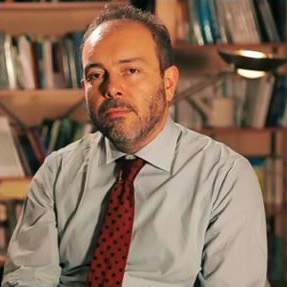Reshaping pharmaceutical marketing: the rising costs of traditional marketing
I do not believe that the traditional channels of pharmaceutical marketing no longer work. I don't...

There are problems that have at their root the choices we have made to solve them.
In the face of a strong awareness that the world is changing and that everything that is happening has a profound effect on business, some pharmaceutical companies I meet are sometimes driven by an instinct to defend the way they have acted and thought up until now, rather than questioning it and developing a new opportunity or a new ability to change it.
In other words, the manager is tempted to make well-intentioned interventions that enhance and develop the current structure. These interventions cannot bring benefits because the internal-external system has changed in such a way that the traditional response to the problem results in the benefits of the intervention being cancelled out. The solutions I see being adopted seem to basically boil down to two.
One is to invest more: increasing discounts, lowering prices, increasing commercial effort or information pressure is often not the solution, but the start of a problem that moves us away from solving the initial problem. If a product is making a loss or selling less, if the network starts to be less effective, increasing sales using the old commercial levers exacerbates the initial problem, depleting the coffers and margins, putting the company structurally in a position, in the future, not to have the financial capacity to develop new products or promote them, generating a bigger problem that could have been solved previously by profoundly changing the unprofitable line.
The other is to disinvest: cutting all promotional and communication costs, in fact maximises the economic results in the short term, but disperses the value of the product, which becomes more and more unrecoverable year by year, it dries up and then will be abandoned and sold. It makes the asset lose value by milking it and letting it die out. Much to the satisfaction of the CFOs.
We are all too tempted to increase commitment in times of difficulty, but this proactive attitude, which in many cases enables challenging or insurmountable obstacles to be overcome (rather than finding alternative solutions), paradoxically contributes to increasing obstacles in others. We are blinded by commitment and do not look around, we do not understand that alternative solutions exist, that previous models are losers and need to be readjusted, and so we maximise our efforts to solve the problem with the traditional systems that worked until yesterday. This is even more evident in pharmaceuticals.
There are managers who think that their boss or management will look favourably on someone who tries harder rather than someone who experiments with solutions; there are managers who believe that, after all, while he is implementing the cure, before the problem really explodes he will be sitting in another chair and someone else will be sitting in his; there are managers who, because of their 'attitude to fatigue', are unable to demand anything more from their subordinates than greater effort and not support for solutions.
Salvatore Ruggiero nasce a Napoli nel 1964, si definisce un imprenditore seriale. Oggi a capo del gruppo Merqurio, di cui è stato anche fondatore. Sposato con Giuseppina, ha due figli e nel tempo libero, tra un'escursione e un'altra, tra un film ed un altro, è alla ricerca della ricetta dei biscotti perfetti.
I do not believe that the traditional channels of pharmaceutical marketing no longer work. I don't...
Pharmaceutical Sales Representative in Italy must change now or it will be overwhelmed.
The trend: 'from domination to collaboration' I think is one to consider, precisely in terms of its...